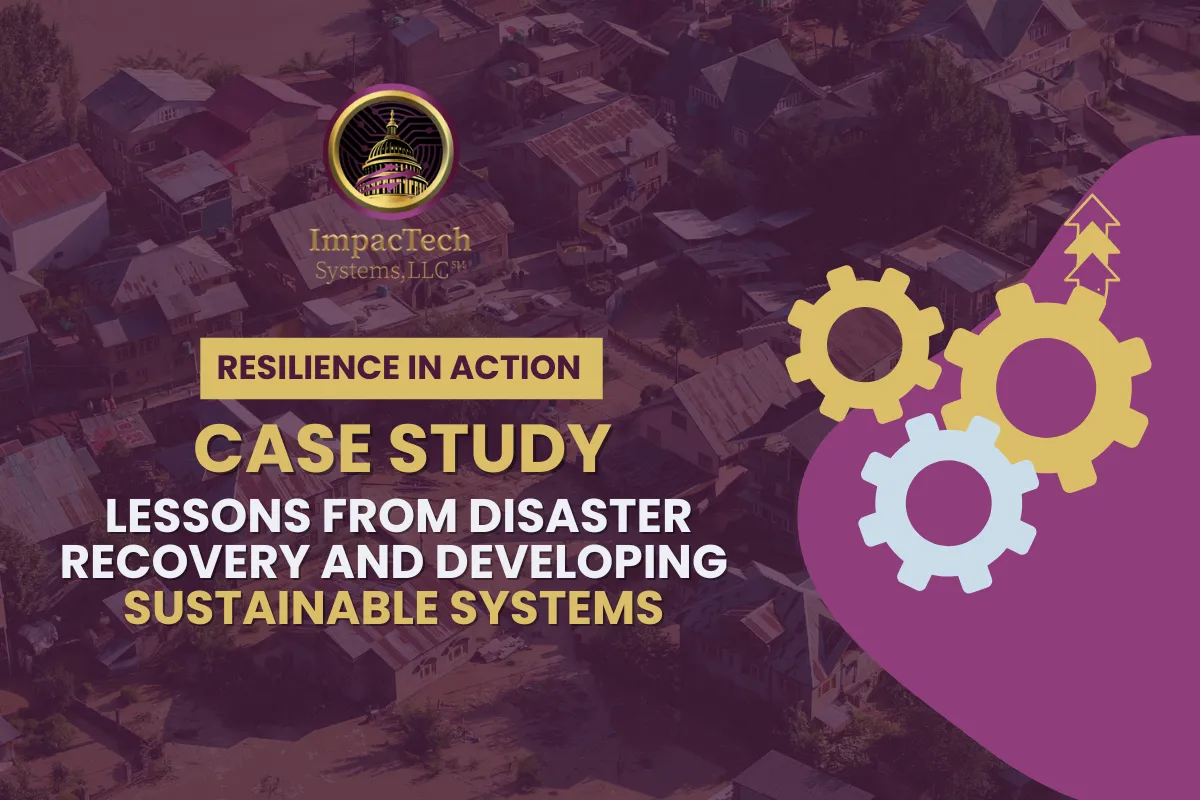
Case Study: Resilience in Disaster Recovery and Systems Design
During Krystel Reid Health tenure from 2013 to 2017 with the South Carolina State Housing Finance and Development Authority (SC Housing), our CEO and Chief Innovation Officer, Krystel Reid Heath, led initiatives that strengthened affordable housing policy and advanced state wide disaster-recovery efforts.
Her leadership informed strategic planning, legislative advocacy, and the development of systems-based recovery solutions that continue to shape state resilience efforts today.
Disaster Recovery Leadership
Appointed by SC Housing’s Executive Director to represent the agency at the State Joint Field Office (JFO) following the historic 2015 flood, Krystel coordinated with the Governor’s Office, SC Emergency Management Division, FEMA, and community partners. She co-led the Housing Solutions Task Force and developed the State Housing Action Plan, a cross-agency strategy to assess housing damage, align resources, and guide recovery priorities.
Securing Critical Funding
Through collaborative planning and data-driven analysis including applying the Social Vulnerability Index (SoVI) to prioritize unmet housing needs the Task Force designed targeted recovery strategies. The resulting State Housing Action Plan led to South Carolina securing over $150 million in HUD Community Development Block Grant–Disaster Recovery (CDBG-DR) funding, enabling thousands of residents to repair and rebuild their homes.
Legislative Advocacy & Policy Tracking
Krystel also developed and managed Congressional and State legislative relationships, advocating for policies that expanded access to affordable housing and strengthened infrastructure. She created the Palmetto Policy Housing Connection, a custom legislative-tracking and policy-analysis newsletter that kept the agency and stakeholders informed of local, state, and national developments.
Why This Matters Now
With the ongoing federal government shutdown, agencies and non-profits nationwide are again confronting uncertainty delayed grants, suspended programs, and strained local resources. These challenges mirror those faced during disaster recovery efforts, when organizations had to act decisively without waiting for perfect conditions.
The same principles that guided South Carolina’s flood-recovery efforts now offer a framework for resilience during today’s federal crisis.
Key Lessons in Resilience
Data Informs Strategy
Reliable data clarifies what matters most, helping organizations allocate limited resources effectively and equitably.A Roadmap Builds Resilience - Flexibility Sustains It
A strategic plan provides direction, but resilience requires adapting that plan as new realities emerge.Relationships and Collaboration Are Catalysts
Strong partnerships across agencies, non-profits, and communities accelerate problem-solving and strengthen collective capacity.Systems Create Stability
Sustainable systems for tracking, coordination, and decision-making allow organizations to manage crises while still advancing long-term goals.
How We Can Help?
At ImpacTech Systems, we help organizations apply these same resilience principles through structured, actionable frameworks:
VIP Policy Day — A high-impact strategy session to align your team around immediate policy priorities, map funding vulnerabilities, and build a flexible action plan.
CSS Lab — A collaborative lab experience that integrates data, systems, and collaboration frameworks to strengthen your organization’s resilience and readiness.
In times of disruption, structured strategy and adaptable systems aren’t just assets, they’re necessities.
Ready to build a resilience strategy tailored to your organization?
Contact ImpacTech Systems today.




